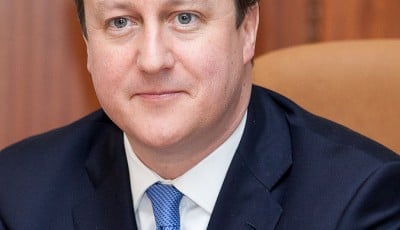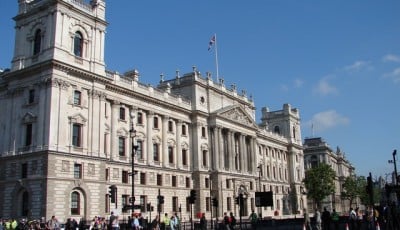UK Treasury launches Call for Information on benefits, risks of digital currencies
The UK government announced Monday the launch of a “Call for Information” on digital currencies’ assets and liabilities as part of efforts to support the growth of Britain’s emerging financial technology (or FinTech) industry and to ensure customers can take advantage of the latest innovations with respect to payments.
According to a government news bulletin, the UK Treasury is seeking views from the public, FinTech companies, the financial services sector, regulators, and law enforcement agencies on the prospects digital currencies possess for delivering new and helpful means for consumers to make payments and for fostering innovation in Britain’s financial sector.
The government says the Call for Information “should be read by those with an interest in digital currencies and the future development of payments. This includes digital currency developers, digital currency exchanges, digital currency users, investors, academics, think-tanks, other government departments, international counterparts, banks, building societies and other payment service providers, payment scheme companies and e-money providers.”
While the government considers digital currencies to have the potential to deliver real benefits to consumers, it acknowledges that concerns have been raised that digital-currency users “may not be protected in the same way as when using banks, and that the degree of anonymity and borderless features of this type of money could potentially be exploited for illicit or illegal activities. The government is therefore also asking for views on the potential risks posed by digital currencies, including possible risks to customers and financial stability.”
Reporting on the Treasury’s move, The Guardian reports that Bitcoin is largely unregulated around the world, though it makes note of the New York State Department of Financial Services’ proposed BitLicense.
The Guardian reports that the Treasury will explore examples of regulations in other nations, but stresses that the lead will come from responses to its own fact-finding mission.
A Treasury spokesman, who noted that digital currencies and related exchanges are currently unregulated in the UK, told the newspaper, “We’re considering the potential benefits of digital currencies to customers and the technology that underpins them, and whether we should take action to support innovation in this area. We’re also looking at the potential risks, and assessing whether action is required to address any concerns.”
The Guardian reports that the Treasury’s Call for Information follows Chancellor of the Exchequer George Osborne’s announcement in August that the UK government intends to focus on digital currencies, and FinTech in general.
“It’s only by harnessing innovations in finance, alongside our existing world class knowledge and skills in financial services, that we’ll ensure Britain’s financial sector continues to meet the diverse needs of businesses and consumers, here and around the globe, and create the jobs and growth we all want to see in the future,” said Osborne at the time, according to the newspaper.
According to a document accompanying the government’s news bulletin, the Treasury is focusing its mission on digital currencies in their function as a means of payment, rather than as a speculative investment. The government also differentiates between virtual and digital currencies, stating that virtual currencies “are issued and usually controlled by their developers, and used and accepted among the members of a specific virtual community,” and, as defined, do not fall under the Call for Information. The government is also not focusing on tax treatment of digital currencies.
The government says that once it’s aware of digital currencies’ risks and benefits, it “can take a decision on whether it needs to intervene in the digital currency market. Government interventions could take the form of regulation, for example, to curb financial crime risks or to create a more stable market.”
The Treasury added, “The government is completing this Call for Information in the context of much ongoing international debate on digital currencies and how to treat them. For example, there are ongoing discussions in Europe and at the Financial Action Taskforce. The information gained through this Call for Information will be used to ensure the UK government’s own position on digital currencies is properly informed and in the best interests of UK consumers and businesses.”
The Treasury lists 13 questions about digital-currency risks and benefits, crime, and monetary and financial stability for those interested in providing their perspectives to ponder.
People who wish to respond to the Call for Information have until December 3 to submit their responses, either by post or email.
Image Attribution: Ian Paterson











